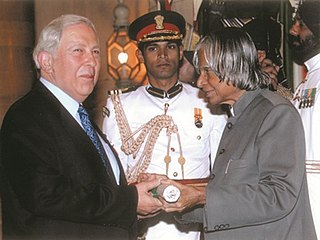A Quote by Barton Gellman
In the wealthy industrialized nations, effective drug therapies against AIDS became available - AZT as early as 1987, then combinations of antiretroviral agents in 1996. The new drugs offered hope that fatal complications might be staved off and AIDS rendered a chronic condition.
Related Quotes
HIV/AIDS from converted from a lethal disease into a chronic disease because basic scientists' fundamental research was done that illuminated aspects of that virus and allowed the generation of therapies like antiretroviral therapies. And so now HIV/AIDS is not a lethal disease, it is a chronic disease.
The Next Chapter in the Book of Hope: "Gaining New Hope Hearing Aids" As I was with the Lord in the "Classroom of Useful Information," the Lord began to share from the second chapter of the "Book of Hope." This chapter taught about the right, hopeful "Hearing Aids" that would enable His Hope Craftsmen to hear His voice and become a company of hopeful Kingdom hearers.
For a decade, makers of AIDS medicines had rejected the idea of lowering prices in poor countries for fear of eroding profits in rich ones. The position required a balancing act, because the companies had to deflect attacks on the global reach of their patents, which granted exclusive marketing rights for antiretroviral drugs.
I want to make it clear, though, that I am not trying to say these are bad drugs. Opioid medications in the short term for severe pain are very effective. The problem is when they are used for long-term chronic pain. No one wants anyone to suffer and be in pain. But realize how addictive these drugs are and get off of them as quickly as you can. So 'Warning: This Drug May Kill You' is really more about educating people about these drugs so that everyone can make their own decision about their pain versus the addictive nature of these drugs.































